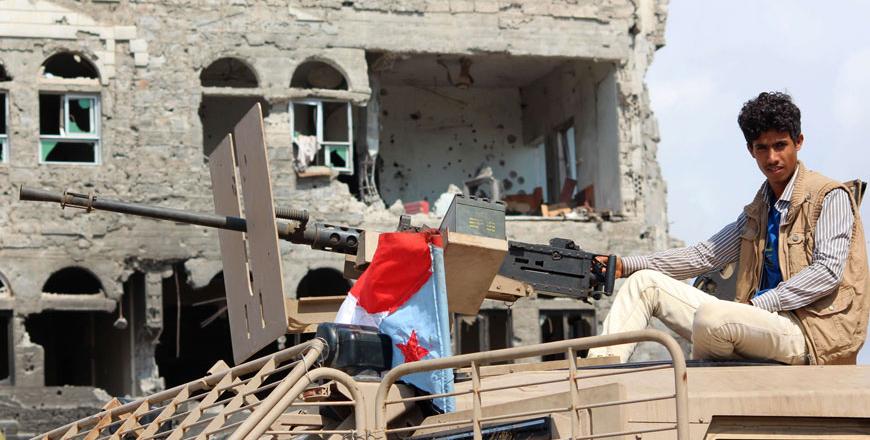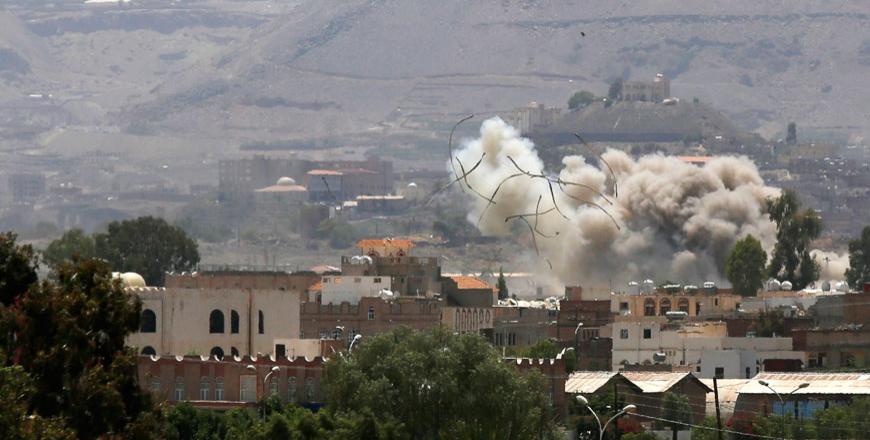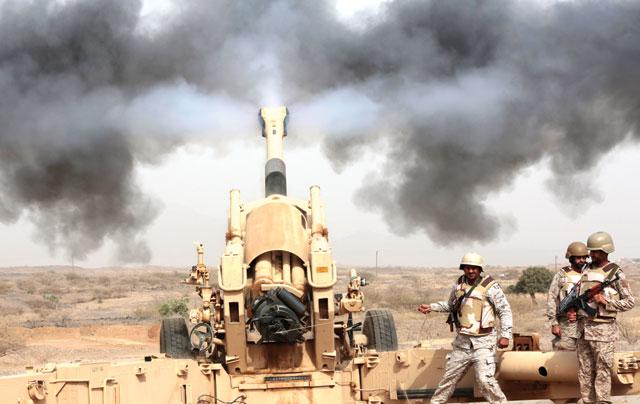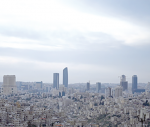You are here
Top Yemen Shiite rebel welcomes UN peace talks
By AP - Jun 04,2015 - Last updated at Jun 04,2015
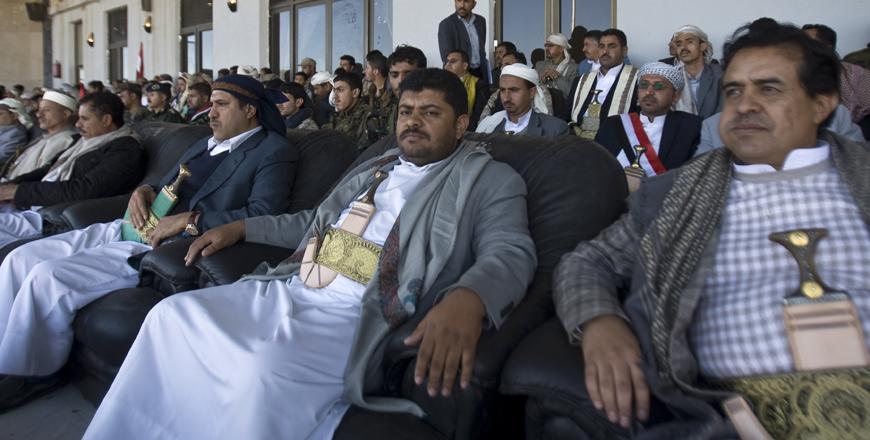
Mohammed Al Houthi (centre), who heads the Houthi rebels’ powerful Revolutionary Council, attends a rally in support of the Houthis at a sports stadium in Sanaa, Yemen, on February 7 (AP photo)
SANAA () — The second-in-command of Yemen's Shiite rebels on Wednesday assailed the Saudi-led air strikes pounding his group's positions and allied forces, insisting they are ready to travel to Geneva for UN-mediated peace talks on ending the country's civil war.
Mohammed Al Houthi, who heads the Houthi rebels' powerful Revolutionary Council, also told The Associated Press that exiled President Abed Rabbo Mansour Hadi derailed negotiations by demanding the rebels withdraw from territory they captured as a precondition for talks.
The Geneva talks had been previously postponed with no new date announced, though a UN official said earlier this week they hope talks will start by June 10.
"They are putting pre-conditions to obstruct any talks that could lead the Yemeni people to a solution," Al Houthi said, saying the Saudis and their coalition refused to stop their air campaign to allow for peace talks.
"Dialogue is the principle to us. There are no objections to talks," Al Houthi said, but added: "What is happening today is the opposite. The coalition is the one that rejects the talks and work on foiling it."
The Houthis began their advance in September, sweeping into the Yemeni capital, Sanaa, and taking over government ministries and other areas. They held top officials, including Hadi, under house arrest. Hadi and others later fled for Aden, then for Saudi Arabia as the rebels advanced, backed by forces loyal to former leader president Ali Abdullah Saleh.
The Saudi-led coalition began its air strikes March 26. Since then, the air strikes and ground fighting have killed more than 1,000 civilians and displaced a half million people, according to the UN The offensive, so far, failed to force the Houthis to withdraw from any territory they hold or blunt their advance in southern Yemen.
The Saudis and Western powers accuse the Houthis of receiving military support from Shiite power Iran as part of a larger proxy war between the Sunni kingdom and the Islamic Republic across the Mideast. Tehran and the rebels deny the allegation, though Iran openly has sent humanitarian aid.
"There is no Iranian intervention in Yemen and the Saudis can inspect the missiles [we fire] and see if these are made in Iran, Russia or America," Al Houthi said. "We say that they are purely Yemeni-made."
Asked whether Iranian or Hizbollah forces fight alongside Houthi forces, Al Houthi dismissed the claims as a means to "scare others”.
"We reject any sort of foreign intervention either by the Saudis, the American, the Egyptians or the Iranians," he said.
Al Houthi met an AP correspondent near the Yemeni capital of Sanaa at lightly guarded house, bare of furniture except for cushions spread on the ground.
Al Houthi wore traditional Yemeni robes with a dagger thrust into his silk waistband and sat next to a Kalashnikov assault rifle as he spoke. He said that UN talks should start from where it ended, during last round of UN-mediated talks in Sanaa earlier this year while Houthis put Hadi under house arrest.
Those talks included the formation of a new government and parliament, including a presidential council. The only outstanding issue was the "whether to keep Hadi at the top of the presidential council”, Al Houthi said.
A presidential aide said late Tuesday that Hadi was willing to participate in the Geneva talks. The aide, who spoke on condition of anonymity because he wasn't authorised to brief reporters, did not mention any conditions.
Oman — the only Gulf country that is not participating in Saudi-led coalition — is hosting series of meetings about the crisis including the Houthis. The Oman-led mediations have secured the release of an injured American journalist held along with several other Americans by the Houthis.
Al Houthi spoke Wednesday as the Saudi-led coalition launched new strikes on Houthi positions in Sanaa, rocking residential areas and sending panicked residents fleeing into basements. The strikes, as well as Saudi-led air and sea blockade, have caused food, water and medicine shortages, sparking a humanitarian crisis in the Arab world's poorest country.
Heavy air strikes also targeted the northern Houthi heartland of Saada, the eastern province of Marib — home to Yemen's oil fields — the western city of Taiz and the southern city of Aden.
"The 69-day assault has pushed the country to disaster," Al Houthi said. "Yemen is facing a real genocide."
In the Saudi capital of Riyadh, Rageh Badi, spokesman of the Yemeni government in exile, accused the Houthis of "systematically assaulting civilians" through random shelling, besieging cities, and kidnapping activists and journalists and "using them as human shields”. He was referring to the killing of two journalists last month after the Houthis abducted them and placed them at a site targeted by air strikes.
Badi said Yemen's "legitimate government" will return gradually to the "safe zones" in the country starting next week, without elaborating.
Related Articles
GENEVA/DUBAI — Yemen's warring parties are expected to observe a ceasefire and start UN-sponsored peace talks in Switzerland from December 1
SANAA — Saudi-led coalition warplanes heavily bombarded rebel positions across the Yemeni capital Saturday, ahead of expected UN-mediated pe
At least 15 people were dead and there were fears for dozens more Monday after air strikes by a Saudi-led coalition set off explosions that tore through Yemen's rebel-held capital.


